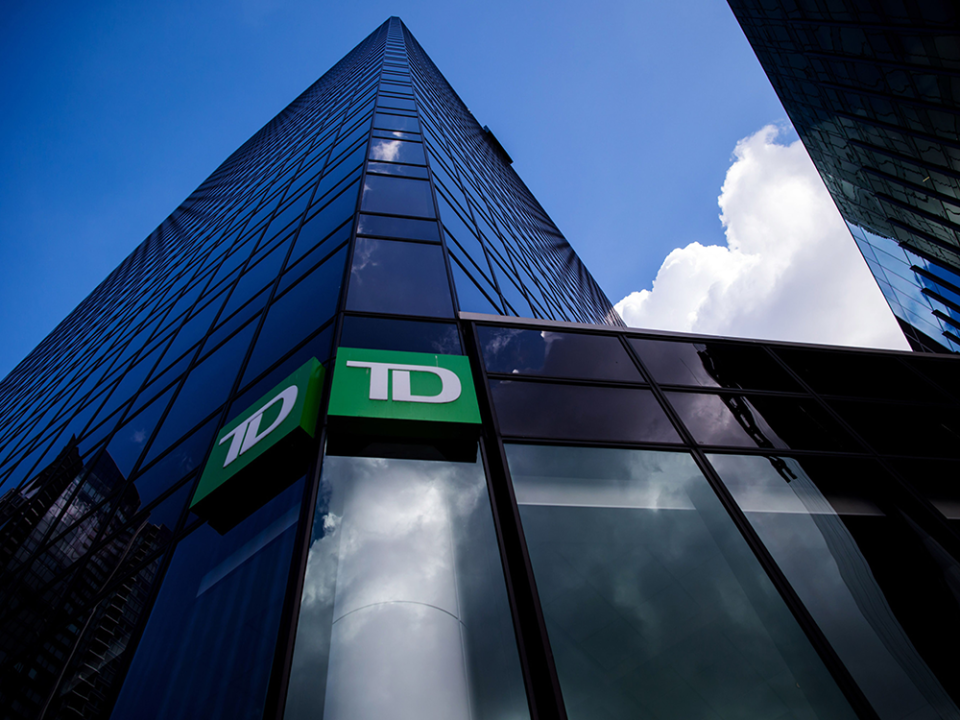'They need each other': Banking crisis amps up uncertainty around TD's First Horizon deal

Toronto-Dominion Bank’s proposed US$13.4 billion acquisition of Tennessee-based First Horizon Corp. was supposed to be the lynchpin of its U.S. expansion strategy, a move that would make it the sixth-largest bank there with US$614 billion in assets and allow it to keep ahead of Canadian rivals who have been building their own operations south of the border.
Now regulatory hurdles and the aftermath of the collapse of Silicon Valley Bank, which has sent the values of U.S. regional banks tumbling, mean the deal is unlikely to be completed on its original terms, and may fall apart altogether.
Shares of First Horizon closed at US$16.13 on Tuesday, 35.5 per cent below the US$25 per share offer TD launched in late February 2022 and 22 per cent below their March 10 level, when SVB was taken over by the U.S. government.
“Your scenario on the original (stock) price of US$25, I don’t think that is on the table right now just because of SVB and what transpired there,” said Canaccord Genuity analyst Scott Chan.
First Horizon is not the only U.S. regional bank caught up in the SVB turmoil. Canaccord Genuity’s research pointed to a 26 per cent decline in general across U.S. regional banks month-to-date.
It comes on top of regulatory problems that emerged in February, when TD warned First Horizon that it might not be able to gain regulatory approval by the extended deadline of May 27.
According to its agreement with First Horizon, the merger can be terminated as long as both banks sign off on the decision, or if the merger isn’t completed within 12 months, with one three-month extension, which had already been exercised. It seems unlikely the deal will go ahead at the current price, but it’s too soon to tell whether the two banks will re-negotiate the terms.
Chan said the deal could still be mutually beneficial, giving TD more scale in the U.S. and strengthening its commercial and private wealth segments. Chan added that TD has put in a lot of time and effort into the deal and is unlikely to walk away entirely. For First Horizon, losing TD’s backing would mean its shares could fall even further.
“I think both parties are motivated to find a better-negotiated price to make it happen because I think they both need each other, especially after the duration and extended duration this has been going on,” Chan said.
National Bank of Canada analyst Gabriel Dechaine noted that the exposure of TD and the Bank of Montreal to uninsured depositors in the U.S. was consistent with most U.S. regional banks at 50 to 60 per cent.
“Setting aside the issue of obtaining regulatory approvals, recent events have prompted even more questions about TD’s ability and willingness to negotiate a lower acquisition price,” he said.
If the deal doesn’t to go through, the effect on TD may be limited. It is already the dominant player south of the border, with a stronger franchise than the Royal Bank of Canada or BMO, Chan said.
He added that the capital not used for the deal could be put toward more aggressive share repurchases given the current valuation discount, with shares down 10.5 per cent year-to-date. The bank could also use the capital to pursue other opportunities in the U.S.
Carl De Souza, financial institutions group team lead at credit rating agency DBRS Morningstar, agreed that TD would likely do some soul searching if the deal fell apart, then figure out where to put the capital to work.
“If (the deal) doesn’t go through, they’ll have done their cost benefit analysis and they’ll figure out what’s right for them,” De Souza said. “Whether that’s a lower price and they can achieve that lower price, whether they want to walk and then they will then obviously look and focus on how to deploy that excess capital most effectively to get return, and there’s different ways to do that.”
De Souza added that having excess capital isn’t a bad place to be in, but TD probably wouldn’t want to sit on it for long.
So far, TD has kept up a brave face when it comes to the deal.
“TD is fully committed to the transaction and we are in discussions with First Horizon about a potential further extension beyond May 27,” the bank’s chief executive, Bharat Masrani, said in a press release accompanying first quarter results in March. “This is a great transaction that offers scale and new capabilities for the U.S. bank.”
OSFI reinforces creditor hierarchy in wake of Credit Suisse controversy
SVB shook up Canadian tech lending. Will the big banks fill the void?
Masrani said on the conference call that TD was in negotiations with First Horizon, but declined to provide further detail on any extension date or whether there would be a change to the purchase price.
For those watching the bank, the sooner it can provide clarity the better.
“Things have certainly changed in terms of timing,” Chan said. “The longer it goes, the more uncertain it is.”
• Email: shughes@postmedia.com | Twitter: StephHughes95

 Yahoo Finance
Yahoo Finance 